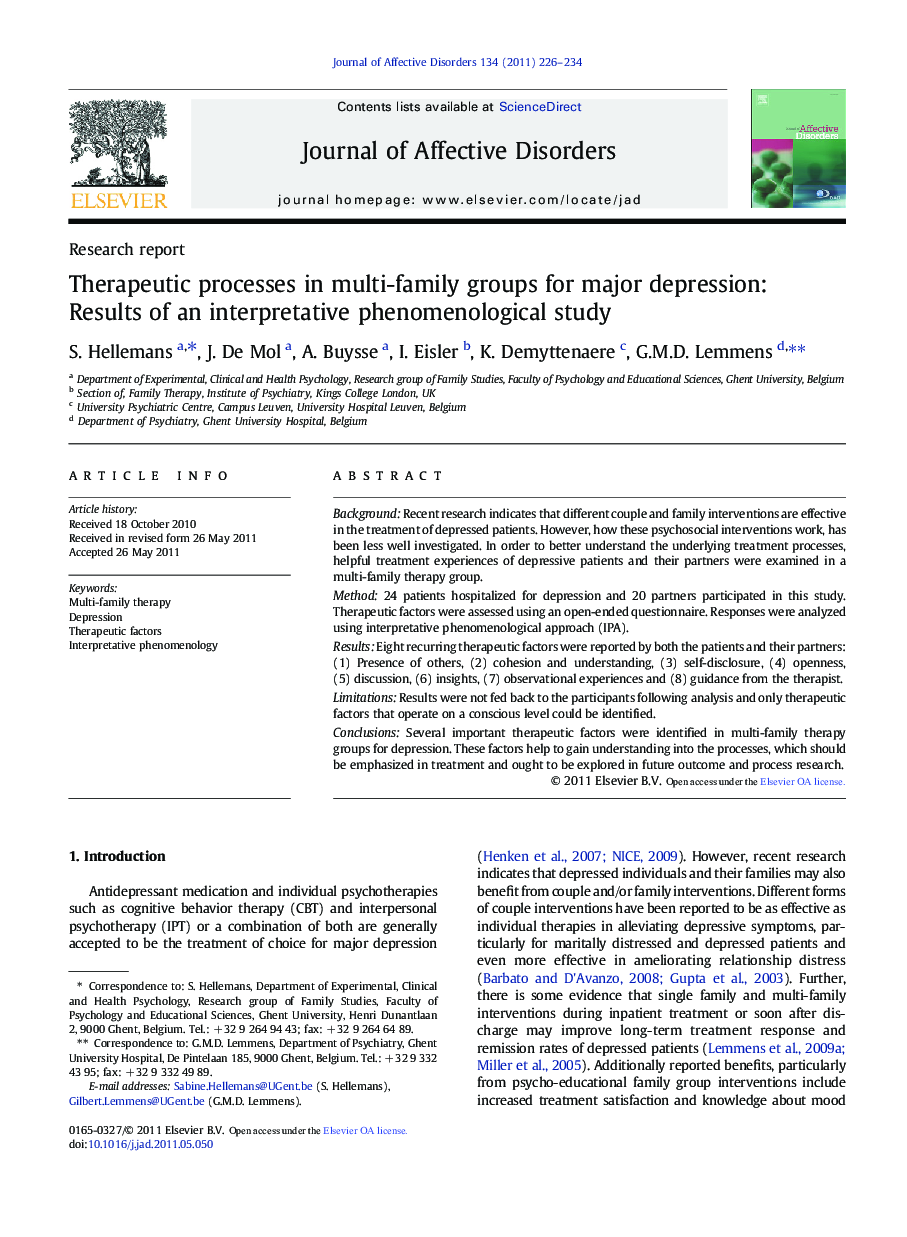| Article ID | Journal | Published Year | Pages | File Type |
|---|---|---|---|---|
| 6235145 | Journal of Affective Disorders | 2011 | 9 Pages |
BackgroundRecent research indicates that different couple and family interventions are effective in the treatment of depressed patients. However, how these psychosocial interventions work, has been less well investigated. In order to better understand the underlying treatment processes, helpful treatment experiences of depressive patients and their partners were examined in a multi-family therapy group.Method24 patients hospitalized for depression and 20 partners participated in this study. Therapeutic factors were assessed using an open-ended questionnaire. Responses were analyzed using interpretative phenomenological approach (IPA).ResultsEight recurring therapeutic factors were reported by both the patients and their partners: (1) Presence of others, (2) cohesion and understanding, (3) self-disclosure, (4) openness, (5) discussion, (6) insights, (7) observational experiences and (8) guidance from the therapist.LimitationsResults were not fed back to the participants following analysis and only therapeutic factors that operate on a conscious level could be identified.ConclusionsSeveral important therapeutic factors were identified in multi-family therapy groups for depression. These factors help to gain understanding into the processes, which should be emphasized in treatment and ought to be explored in future outcome and process research.
